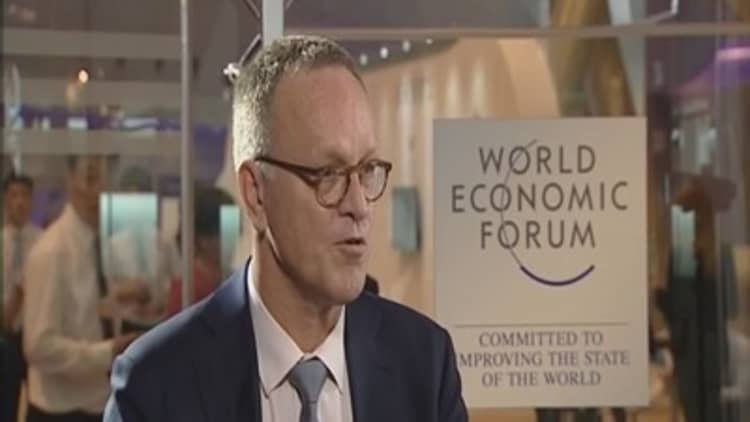The Eurogroup of euro zone finance ministers are gathering for yet another summer meeting this weekend. But, for once, it's not Greece topping the agenda. Instead, officials will be discussing how to boost growth and employment in the 19-country single currency region in order to prevent a lost generation of "unemployable" citizens.
Although the most recent economic data show a positive trend in the region -- the most recent gross domestic product (GDP) estimates released this week showing that the euro zone economy grew a respectable 0.4 percent in the second quarter against the previous three months. But it is getting that return to growth to translate into an investment in human capital remains a hot topic for politicians.
Although the headline unemployment rate in the euro zone was 10.9 percent in July – the lowest level in three years - the rate belies the great disparity between the rate of unemployment seen in northern and southern Europe. While Germany has the lowest jobless rate of 4.7 percent, for example, its southern counterpart Greece has a 25 percent unemployment rate (in May, the latest available data), followed by Spain, at 22.2 percent.

Jonathan Loynes, chief European economist at Capital Economics, told CNBC that while he saw the labor market improving against a backdrop of better growth data, it was doing so very slowly.
"Labor market conditions have been improving but it has been doing so from a very low starting point and economic growth rates at this level are not really adequate," he told CNBC this week.
"There is still a great deal of slack in the economy (the amount of unused capacity in the economy) and the longer that goes on, the greater the potential damage done to the economy's capacity for productivity," he said, warning that the those already unemployed at length effectively can become unemployable.
Euro zone leaders are not oblivious to the problem of pockets of stubborn high unemployment in the region, particularly in the poorer southern euro zone nations. In November 2014, the head of the European Commission, Jean-Claude Juncker, proposed a 315 billion euro ($351.5 billion) investment plan for Europe aimed at helping small and medium-sized enterprises, creating a million jobs, long-term growth and competitiveness.
Unveiling the package last year, Juncker said it offered a simple message to the world: "that Europe can offer hope to its future generations and to the rest of the world as a promising, attractive hub for jobs, growth and investment."
Raymond Torres, the director of the International Labor Organization's Research Department told CNBC that the investment plan was a good start, but the policies needed to be implemented properly at a euro zone (rather than national) level, and that required a more coordinated approach by leaders.
"Unemployment is certainly one of the euro zone's biggest problems and can't be tackled by individual country policies only," Torres told CNBC, warning of a two-tier region where growing economies like Germany attract talented workers and hence grow further, while others such as Greece lose their skilled workers and become even more depressed.
"What we're seeing is this divergence in that some countries, like Germany, Austria and the Netherlands are going in a certain direction and attracting talented people from throughout Europe creating this virtuous circle but then there are other countries becoming more depressed but that then leads to a situation where the whole region is unstable."
Countries like Spain pose an interesting dichotomy- the economy is growing, but unemployment remains stubbornly high. Torres said that while the economy was doing better, employers were cautious.
"In Spain we've seen a proliferation of shorter contracts – such as one-week contracts. So educated young people are getting jobs but it's typically those short contracts. These jobs are relatively unstable and this is a big challenge for Spain to consolidate that."
Torres agreed that restoring credit conditions for small businesses (typically, the principle job creators in the region) could help the region and added that creating a stronger fiscal capacity in Europe would help broaden and "scale up" Juncker's investment fund. He warned that more needed to be done at a faster pace, however, "this has to be done now," he said.



